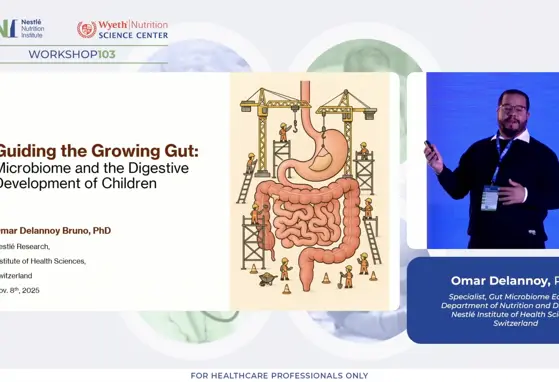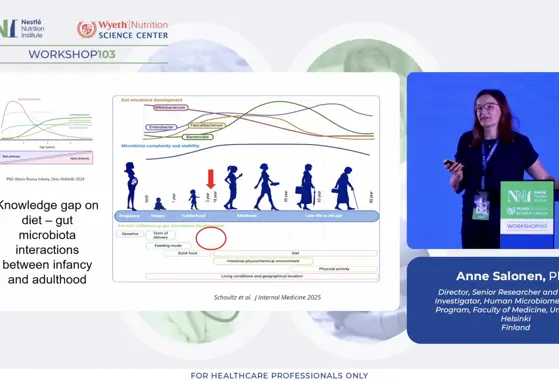The Human Milk Oligosaccharide, 3′SL, in pre-weaning Milk influences Attention, Learning and Memory later in Life
Modulation of 3′-sialyllactose (3′SL) levels in milk during exclusive suckling influences adult cognitive function, as reported for the first time by Pisa and colleagues from the Centre for Behavioural Sciences and Mental Health, Italy, and the Nestle Research, Switzerland. The findings of this preclinical study were presented at the 52nd Annual Meeting of the European Society for Paediatric Gastroenterology, Hepatology and Nutrition (ESPGHAN) held in Glasgow, Scotland, in June 2019.
Human milk oligosaccharides (HMOs) are the third most abundant components of human milk. They have been proposed to be one of the major mediators for beneficial effects of breastfeeding on neurodevelopment and associated brain functions during adulthood. The most researched among the hundreds of HMOs are 2′-fucosyllactose (2′FL) and 6′-sialyllactose (6′SL).
In this study, Pisa and colleagues evaluated the role of normal or low levels of 3′SL in programming executive functions at a later stage of life, such as learning, memory, attention and locomotion. The study included experimental groups with wild type (WT) mice and mutant (MUT) mice that were able to produce normal or low levels of 3′SL, respectively. MUT mice and WT mice received milk with normal or low levels of 3′SL, respectively, while the WT mice which received milk with normal 3′SL levels served as controls. Memory was assessed using the Barnes maze and novel object recognition, attention using the attentional set shifting task (ASST), spontaneous alternation using the T-maze and anxiety in the elevated zero-maze.
In comparison with the control group, all mice in the experimental groups exhibited a reduced retention in memory in the Barnes maze, but not in the novel object recognition. This indicates that the presence of 3′SL may be necessary for spatial memory. However, WT mice that received milk with low 3′SL levels showed poor performance in spontaneous alteration and in 3 aspects of attention, such as compound discrimination, compound discrimination reversal and intra-dimensional shift, but not in extra-dimensional shift. There was no difference in anxiety among the experimental groups.
The researchers concluded that 3′SL shows a programming effect on adult memory and executive functions. Furthermore, the findings suggest that this impact of reduced levels of 3′SL is not similar to that of 6′SL, which indicates that these 2 HMOs cannot fully compensate each other. Thus, these findings support a key role of specific sialylated HMOs during the early life period.
If you liked this post you may also like

Mindful Microbes: The Interplay Between Environment, Gut Microbiome, Brain, and Behavior

Exploring the Crosstalk: Nutrition, Microbiome, and Cardiometabolic Health

Guiding the Growing Gut: Microbiome and the Digestive Development of Children

Nourishing the Microbiome at Preschool age: Dietary influences from infancy to present